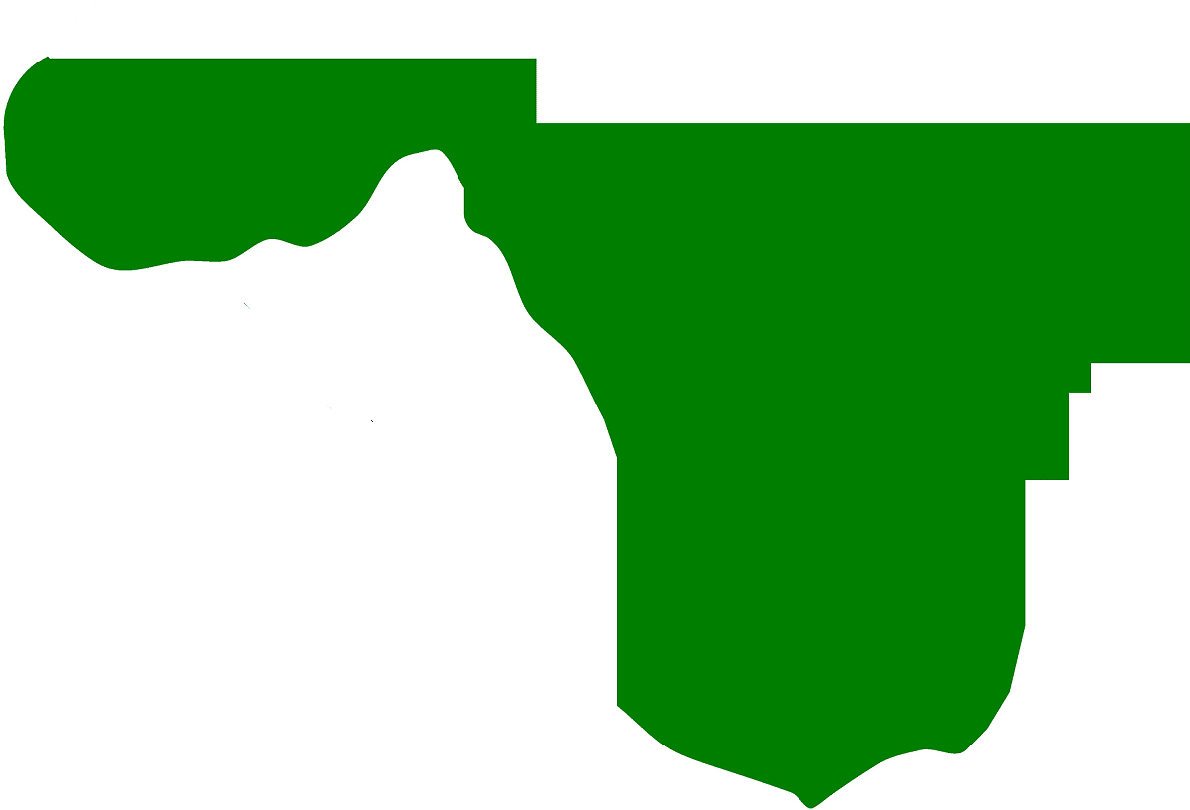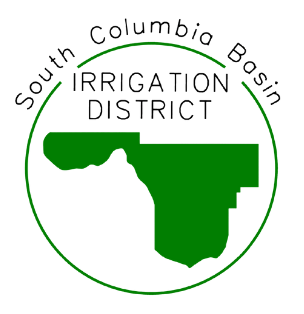Over 180 Local Producers Show Up for Fundraising Event
Alliance Leadership Team in Washington State: Mark Limbaugh (D.C. Advocate), Charlie Lyall (WA Director), Norm Semanko (General Counsel), Dan Keppen (Exec. Director), Mark Hansen (WA Director), Pat O'Toole (President), Urban Eberhart (Chair, Advisory Committee).
This article was written and distributed by the Family Farm Alliance. A link to the original article can be found below.
(Yakima, Washington) – Family Farm Alliance Directors Mark Hansen and Charlie Lyall spearheaded a three-day tour of Central Washington farms and irrigation districts that was highlighted by a fundraising dinner attended by over 180 local producers.
“The tour and the reception were both home runs,” said Mr. Lyall.
The tour was an eye-opening experience for those who traveled to the Columbia River Basin and Yakima River watersheds from out of the state.
“This region is almost overwhelming,” said Alliance President Patrick O’Toole, who made the trip to Washington with his wife, Sharon, from Wyoming. “The diversity of the cropping, the marketing and the community that has built up around all of this agricultural water is stunning to me.”
Columbia Basin Project
The Bureau of Reclamation’s Columbia Basin Project serves about 671,000 acres in east central Washington. The crown jewel of the project is Grand Coulee Dam, one of the largest concrete structures in the world.
The four counties in which the Columbia Basin Project lies generate roughly $3 billion dollars in agricultural production value. Farms in the Project employ over 13,000 people, which equates to one-in-five employees in the region’s total workforce.
Agriculture here powers a multi-billion-dollar processing industry. When you add in the number of employees who work in food processing as well as agricultural services, the employment number doubles or triples.
Food processing in the region is also highly specialized. Over two-thirds of Washington’s potatoes are grown in the Columbia Basin. Washington State is the fourth largest exporting state in the nation. A significant portion of these exports are derived from the Columbia Basin.
Pat O'Toole stands by as thousands of apples are processed and packed at the Washington Fruit & Produce Company.
Yakima Project
Reclamation’s Yakima Project provides irrigation water for a comparatively narrow strip of fertile land that covers over 460,000 acres and extends for 175 miles on both sides of the Yakima River in south-central Washington.
Yakima County is home to one of Washington’s most diverse agricultural systems, with vast fields of hops, fruit trees, grapes and sweet corn. Agriculture contributes a whopping $1.6 billion to the local economy. It is the leading county in the nation in apple production with more than 50,000 acres of apple orchards.
In adjacent Kittitas County, timothy hay is a major cash crop. Timothy hay is grown primarily for the export market and is the single-largest agricultural product produced there. Roughly 90 percent of the timothy hay crop is exported overseas to Japan, South Korea, United Arab Emirates, Vietnam, and other Pacific Rim countries, with Japan being the single-largest export customer.
South Columbia Basin Irrigation District Director JJ Danz, Quincy Columbia Basin Irrigation District Secretary-Manager Roger Sonnichsen, and Quincy Columbia Basin Irrigation District Director Mike LaPlant
Tour Highlights
The first stop on the tour was the Lamb Weston food processing plant in Richland. Lamb Weston is a leading supplier of frozen potato, sweet potato, appetizer and vegetable products to restaurants and retailers around the world. From there, the tour wound through the Columbia Basin Project and Yakima Project, where the group met with local producers of cherries, hay, alfalfa, grapes and apples.
The three-day tour also included meetings with Quincy Columbia Basin Irrigation District, South Columbia Basin Irrigation District, Roza Irrigation District, Kittitas Reclamation District and Sunnyside Irrigation District staff and board members.
The tour had lunch at a ranch in the Wenas foothills, where participants were briefed by representatives of the U.S. Forest Service, Washington Department of Water Resources, and Washington Department of Fish and Game.
“The collaborative efforts of local water users, the Yakama Nation, conservation groups and state and federal agencies to proactively address fisheries challenges and drought resiliency are seen by many as a model for the West,” said Alliance Executive Director Dan Keppen.
Brad Haberman with Hay Number 9 Processing explains the fine details of processing timothy hay and alfalfa for transport.
“An Amazing Community” Shows its Support
Alliance Directors Hansen and Lyall worked with a team of local volunteers to host a tri-tip and lamb barbecue at the Black Rock Arena near Moxee on Wednesday evening. Mr. O’Toole, D.C. advocate Mark Limbaugh, General Counsel Norm Semanko and Mr. Dan Keppen all delivered remarks at the 2-hour event, touching on a variety of Western water issues, including water infrastructure spending, the political climate on Capitol Hill, recent Supreme Court water decisions, and nationwide food security.
Alliance representatives were appreciative of the large audience and community support.
“It’s an amazing community,” said Mr. O’Toole. “The amount of food production coming out of this area is astounding. It all depends on reliable water supplies. The people of this region are planning not only for today but for the long term.”
“It’s what we’re all about,” he added. “Families are the centerpiece of this area and are at the core of our organization.”
LINK: Family Farm Alliance
2024 Water Season
The South Columbia Basin Irrigation District announces the 2024 water season start dates…
The South Columbia Basin Irrigation District will begin filling the Potholes Canal on March 1, 2024. Deliveries from the Potholes Canal will begin on March 13, 2024 to the Mattawa area, the Potholes Canal service area of Franklin County, and Blocks 2 and 3. Deliveries to Block 18 and other lands served from the East Low Canal system will begin as water becomes available from East Columbia Basin Irrigation District.
Irrigation deliveries will be dependent on demand in the individual lateral systems. In locations where pumping plants are required for irrigation deliveries, startup dates will depend on adequate orders to start the pumping plants.
Landowners will need to contact their Watermaster office for specific delivery dates and water availability.






